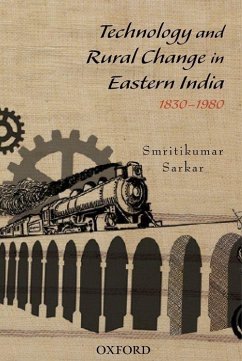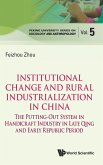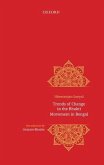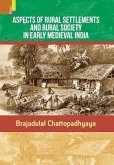The book discusses how Western technology, primarily the means of transport and manufacture, changed the Indian village. Technology reached India through colonialism, as also through corporate bodies and private enterprise. The study is based on British Bengal, which correspondis to present-day West Bengal and Bangladesh. British Bengal also included Bihar, Orissa, and Assam for intermediary periods-these areas have also been frequently referred to by way of illustration. With Calcutta as the hub, eastern India was the gateway of technology transmission to India. Underneath the relatively known areas of technology build-up, there was an inner layer of its transmission from the colonial metropolis to the interior, which is much less known. This book, a social history of technology in the main, analyses the context and results of technology induction to the village, such as the railways redrawing the morphology of rural settlement, the new tools-led empowerment of artisans, or their dispossession due to mechanization. While technology improved the quality of life in the West, it largely failed to mitigate poverty in rural India. The book addresses why it failed to accelerate development in India. Based on local level sources, the work blends hard data with folk usage, oral tradition, songs, sayings, and vernacular literature, thereby infusing into the text both a life and a historical insight most often ignored.
With Calcutta as the hub, eastern India was the gateway of technology transmission to India. This book explores the social history of this transmission from the colonial metropolis to the interior and analyses the context and results of technology induction to the villages. Based on local level sources, it also looks into why technology failed to accelerate development in India as against its impact in the West.
Hinweis: Dieser Artikel kann nur an eine deutsche Lieferadresse ausgeliefert werden.
With Calcutta as the hub, eastern India was the gateway of technology transmission to India. This book explores the social history of this transmission from the colonial metropolis to the interior and analyses the context and results of technology induction to the villages. Based on local level sources, it also looks into why technology failed to accelerate development in India as against its impact in the West.
Hinweis: Dieser Artikel kann nur an eine deutsche Lieferadresse ausgeliefert werden.








